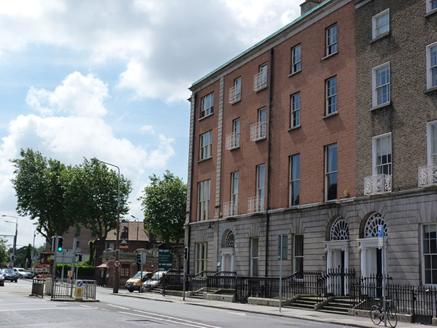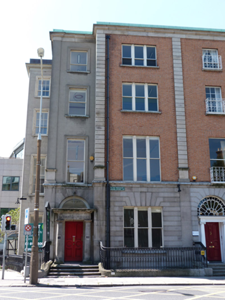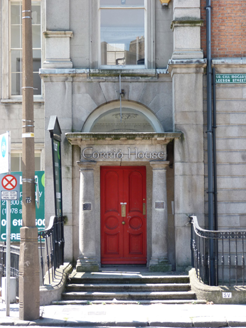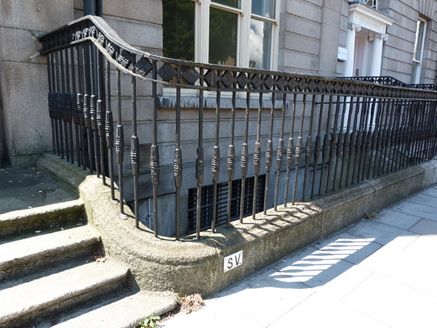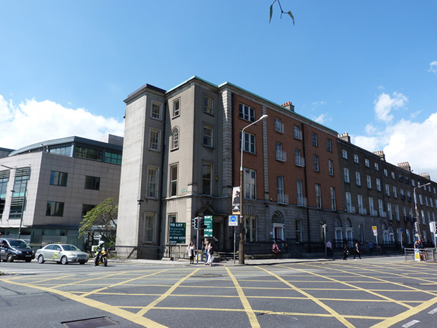Survey Data
Reg No
50110483
Rating
Regional
Categories of Special Interest
Architectural, Artistic
Original Use
House
In Use As
Office
Date
1825 - 1845
Coordinates
316396, 232765
Date Recorded
12/07/2017
Date Updated
--/--/--
Description
Corner-sited attached two-bay four-storey former house over basement, built c. 1835, having recessed single-bay to side (south) elevation and adjoining recent four-storey office building to rear (west) elevation. Now in use as offices. Hipped roof, set perpendicular to street, hidden behind granite parapet, having carved granite cornice with copper flashing and eaves course. Red brick, laid in Flemish bond, to walls to front (east) elevation, with rusticated granite quoins, carved granite cornice over channelled granite to ground floor, cut granite plinth course over rendered walls to basement. Lined-and-ruled rendered walls to side (south) and rear. Round- and square-headed window openings, having moulded render architraves, granite sills. Mixed three-over-three pane, six-over-three pane, six-over-six pane timber sliding sash and replacement windows. Wyatt windows to front. Round-headed door opening, with carved granite doorcase comprising Doric columns and entablature with dentillated cornice, plain fanlight and double-leaf timber panelled door. Nosed granite steps and platform. Replacement railings having cast-iron corner-post to west end, set on carved granite plinth wall to front and side elevations.
Appraisal
One of the more grandly ornamented houses on this side of Leeson Street Lower, the combination of channelled granite and red brick makes a pleasing contribution to the streetscape. The Greek Revival doorcase lends an artistic quality to the composition. The road leading from St. Stephen's Green to Donnybrook was originally called Suesey Street. It was renamed Leeson Street in 1728 to commemorate the Leeson brewing family, who were responsible for significant development in the area. Some early Georgian houses remain but construction predominantly dates from the late eighteenth to mid-nineteenth centuries.
